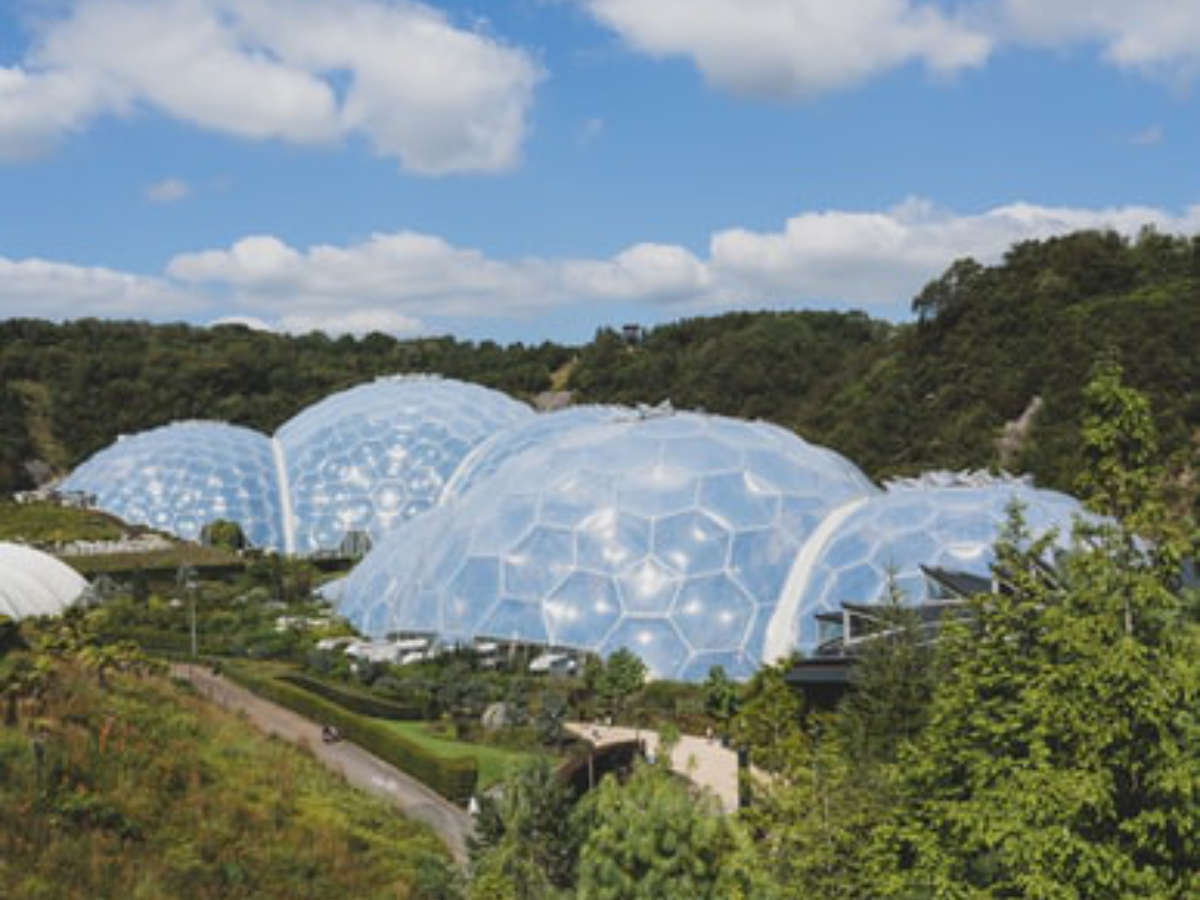By Zoe Skipper-Reed
Zoe from Generation Climate Europe met with Sir Tim Smit KBE, Executive Vice-chair and co-founder of the Eden Project and Executive Co-chair of Eden Project International to discuss the role that projects like Eden can play in bridging the gap between SDG 11: make cities and communities inclusive, safe, resilient, and sustainable, and SDG 13: take urgent action to combat climate change and its impacts.
Zoe Skipper Reed: Can you give an introduction to the Eden Project, and why you co-founded the project?
Sir Tim Smit: I came up with the Eden Project at the end of 1995 with the idea of creating a place that would reveal to visitors that they depended on the natural world. We wanted it to become the best place in the world that created a sense of understanding the miracle of life adapting to climate zones. And I wanted it to be that even if you were the most cynical person in the world that you would stand at the edge of the pit and for one moment drop your cynicism.
ZSR: The Eden project operates as a social enterprise – meaning that business can operate in collaboration with sustainability goals – as an enterprise what is your vision and what do you hope to achieve by 2030?
TS: ‘Forgetting the word ‘social enterprise’ for a minute, I believe that all businesses should be social enterprises in the sense that they should be well run and therefore making profit but also they should put citizenship values first, and commercial values second. I think that when we’re talking about the SDGs one of the things that should make us incredibly angry is that when we ask anyone, do you think we should have clean water? They’ll say yes; clean air? Yes; fertile soils to pass on to future generations? Yes. And we’ve somehow allowed ourselves to think that some people are above that. There is nothing wrong with creating railways or aircraft or so on, if you do it in such a way that you are not damaging the next generation’s ability to enjoy the things that you are enjoying today.
In terms of the SDGs at Eden, we are digging to the centre of the earth now to give us geothermal energy, and we hope to start a revolution in Britain. I’d like to see in this country by 2030, completely neutral in terms of energy, I’d like to see our agricultural systems change in such a way that we are increasing the fertility of the soil biomass that is generated, biodiversity is encouraged by the way we lay out our fields, to connect wild places together, and most importantly perhaps the potential for carbon sequestration in the soil.
At Eden we’re digging up our water and sewerage systems to create a circular system onsite, we’re going to grow 40% of our fruit and vegetables on site each year, and we’re going to analyse every square metre of our farmlands and car parks so that we know exactly what’s going on. We’re going to see a future in which we have a very muscular localism; collaborative farms and food for each locality; means of production to be economically smarter, electric transport and renewable energy. The revolution is enormous. People are going to be working in industries they don’t even know, pure science will give way to a holistic view to understanding the planet in systems.’
ZSR: Which projects are you currently working on at Eden Project International?
Tim: ‘We decided to build a marine world in China, we’re working with the traditional owners of the land in Australia too. In the red zone of Christchurch we’re working with the Maori people, we’ve got a project in South Carolina, projects in Britain in Derry, at Morecambe Bay and in Dundee. In Portland, Dorset, we’ve got a two-mile underground mine, on the UNESCO Jurassic coast, as a theatre for biodiversity, evolution, and extinction. All projects are located in places where the land is damaged because if everyone made an Eden of their own, the world would be great.’
ZSR: Eden was granted £26m by the EU, or in other words was funded 18% initially by the EU. How in your experience does green funding and financing help to establish sustainable communities and businesses?
TS: Getting away from green funding, every investment is ‘impact investment’, everything we now invest in should be on the right side of the planet. We need to get away from a culture of CSR. We have created £2.2 billion in the Cornish economy due to smart investment working with the supply chain. Using capitalism as a mechanism to leverage good behaviour means investment can make the biggest composite wealth.
ZSR: What mechanisms are there at Eden to meaningfully raise youth voices and give young people an active role in decision making?
TS: ’We want to represent youth at our Trust Boards. I am passionate about bringing people into the leadership of Eden. I’m all for young voices that are taught questioning, and my passion is to create a cadre of young people that are so smart that they ask the right questions to start working together to create a culture of knowing what we’re for.
ZSR: Relating to the European Green Deal – what are your comments on the strategy and policies of the Deal?
TS: ‘The Green Deal feels old fashioned but the Just Transition Fund is critical. In the fossil fuel industry, there are brilliant engineers and project managers; we need to find a way of heroising those people to find new forms of energy, of water supply, creating the infrastructure to enable them to be the people they want to be.’
On behalf of Generation Climate Europe, thank you, Tim, for your time and the opportunity to hear your thoughts on Eden’s vision for the future.
To find out more about Eden Project International, please visit: https://www.edenproject.com/mission

